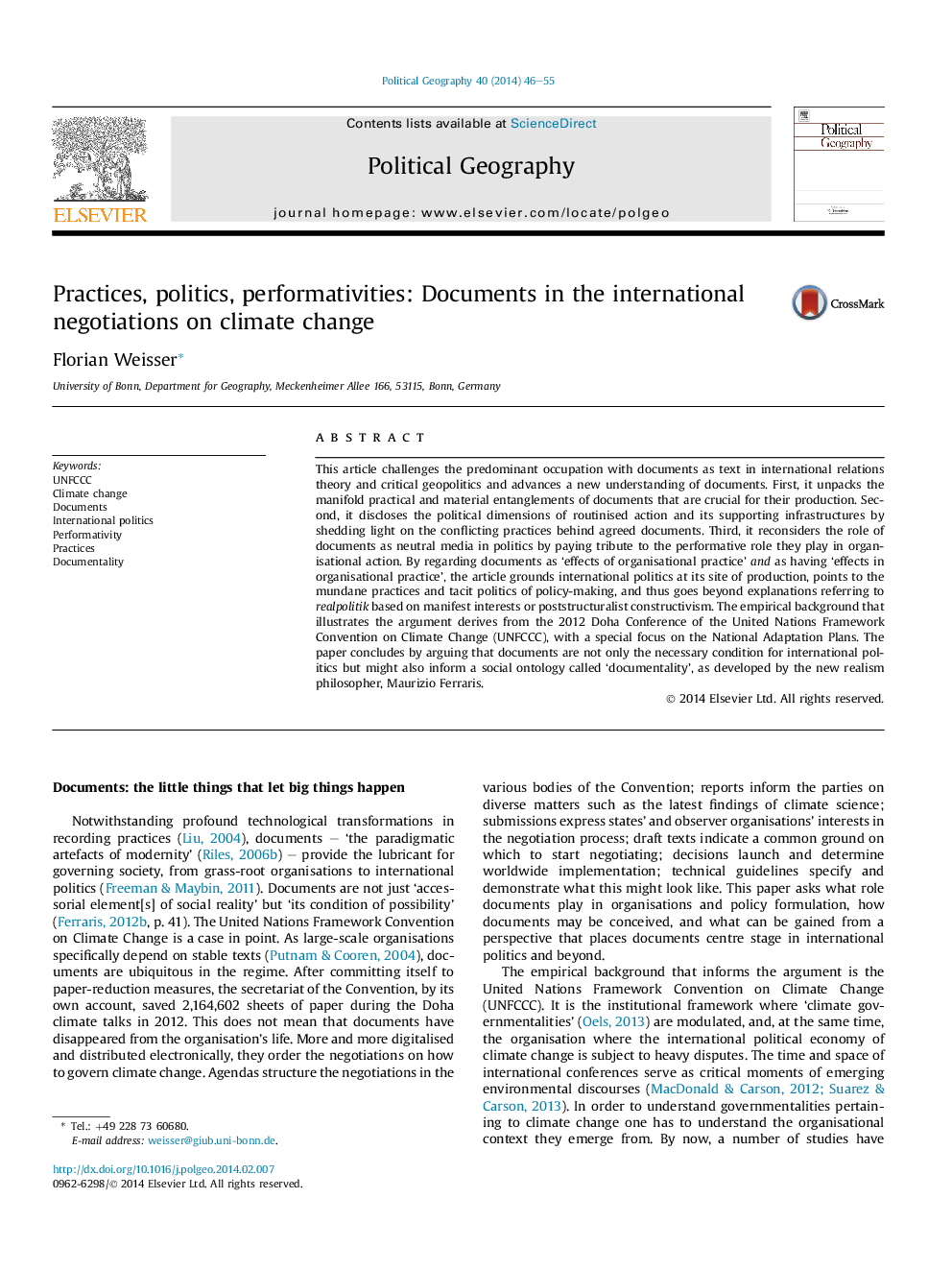| Article ID | Journal | Published Year | Pages | File Type |
|---|---|---|---|---|
| 7493527 | Political Geography | 2014 | 10 Pages |
Abstract
This article challenges the predominant occupation with documents as text in international relations theory and critical geopolitics and advances a new understanding of documents. First, it unpacks the manifold practical and material entanglements of documents that are crucial for their production. Second, it discloses the political dimensions of routinised action and its supporting infrastructures by shedding light on the conflicting practices behind agreed documents. Third, it reconsiders the role of documents as neutral media in politics by paying tribute to the performative role they play in organisational action. By regarding documents as 'effects of organisational practice' and as having 'effects in organisational practice', the article grounds international politics at its site of production, points to the mundane practices and tacit politics of policy-making, and thus goes beyond explanations referring to realpolitik based on manifest interests or poststructuralist constructivism. The empirical background that illustrates the argument derives from the 2012 Doha Conference of the United Nations Framework Convention on Climate Change (UNFCCC), with a special focus on the National Adaptation Plans. The paper concludes by arguing that documents are not only the necessary condition for international politics but might also inform a social ontology called 'documentality', as developed by the new realism philosopher, Maurizio Ferraris.
Related Topics
Social Sciences and Humanities
Arts and Humanities
History
Authors
Florian Weisser,
